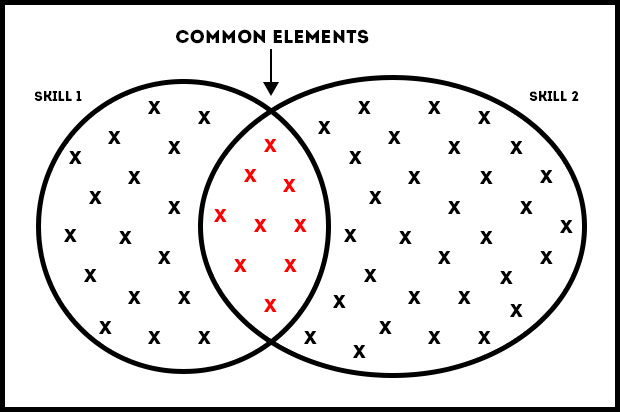I love learning. Especially things that are new. It’s just exciting diving into a new world that is full of possibilities.
Despite my enthusiasm, people in general seem to think you should be more focused on your expertise and not bother with all the other distractions.
When I think of taking that sort of approach to learning it scares the crap out of me. As much as I love design or writing, I couldn’t ONLY learn in those domains. It would drive me mental. So naturally, I ignored that idea completely and I still tinker and dabble with every little thing that catches my eye.
Recently, I started visiting this idea again, about the so called cost of learning. It was probably my latest post on Metacognition that got me thinking, but it seemed to make little sense that learning could ever be a bad thing.
I know that learning new things can expand perspectives, ignite new ideas, and in general brings me joy, but there had to be a more concrete value behind it as well. Just because it wasn’t related to your area of expertise and that learning new things took a good chunk of time, it seemed like it would still offer some long term value.
So I dove into the proverbial rabbit hole that is Wikipedia and started my search. A few articles later and I had found my answer: Transfer of Learning.
What is Transfer of Learning?
F
irst explored by Edward Thorndike and Robert Woodworth, Transfer of Learning is the premise that past experience impacts learning and performance in a new situation.
Or in other words, how what you’ve learned in the past is applicable to what you learn in the future. You wouldn’t believe how I excited I was to come across this idea. It was exactly what I was looking for because it leads us to a simple truth: everything we learn has value.
There are a few different theories in this space that are worth exploring.
Theory of Identical Elements
This theory is based on the premise of identical elements for transfer to occur. The more common elements there are between what you’ve learned and what you’re learning, the more transfer there is. For example, if I were to learn how to ice skate after learning how to roller blade, there is high transfer between those skills. You can see this same level of transfer apply to things like learning languages, programming, design, business principles, and more.
For example, if I were to learn how to ice skate after learning how to roller blade, there is high transfer between those skills. You can see this same level of transfer apply to things like learning languages, programming, design, business principles, and more.
This difference in common elements can be referred to as near transfer, as opposed to far transfer, that has less directly in common.
Theory of Generalization of Experience
On the other hand, the Theory of Generalization focuses on experiences. This theory assumes that what is learnt in one task transfers to another task because the learner develops a general principle, which applies completely or partially to both tasks.
For example, learning how to problem solve or think critically or be creative are more general principles and strategies a learner develops. These very same principles are transferred to everything they encounter. Of course, in both cases, there is a need for deep understanding for true transfer to occur. You can’t get away with rote memorization to experience transfer.
Throughout our lives, experiences, habits, and knowledge gained in various situations become generalized to the extent that they are useful in other situations.
In this way, there is always transfer happening.
__________
T
o be fair, this is so common in our daily lives that we hardly notice it, but that doesn’t mean it isn’t happening. Most transfer occurs on a subconscious level, almost automatically, so that it’s difficult to notice it’s presence.
Naturally this means these theories are still debated in terms of their concepts, explanations, and even their realities. Even so, whatever the final understanding may be, the idea of learning transfers makes far too much sense to discount. Especially when you relate it to other ideas in the realm of knowledge.
All Knowledge is Connected
In the world of knowledge, there is a philosophy called Rhizome that has a simple message: that all knowledge is connected, linked together, with multiple entry and exit points. Rather than thinking of knowledge as a tree, which is a more traditional view, this philosophy see’s it as a network of connected domains.
Much like getting lost on Wikipedia, you can go from an article about Transfer of Learning to an article about Chinese Astrology (I actually did this) in a matter of clicks. All knowledge is connected. A talk by Manuel Lima on this subject and the Power of Networks goes deeper into this idea (below).
As far as I’m concerned, this puts it all together. Learning is a valuable endeavor already, but there is also no such thing as wasted learning. If all knowledge is connected, then certainly elements of what you learn will always be relevant to other areas in some form or another. Learning transfer will occur. Despite the costs or concerns, learning is valuable.
Live as if you were to die tomorrow. Learn as if you were to live forever.Mahatma Gandhi
No matter the field or domain of knowledge you may find yourself in, learning new things is and always will have a positive impact on your life.
Never stop learning.
Image via flickr

